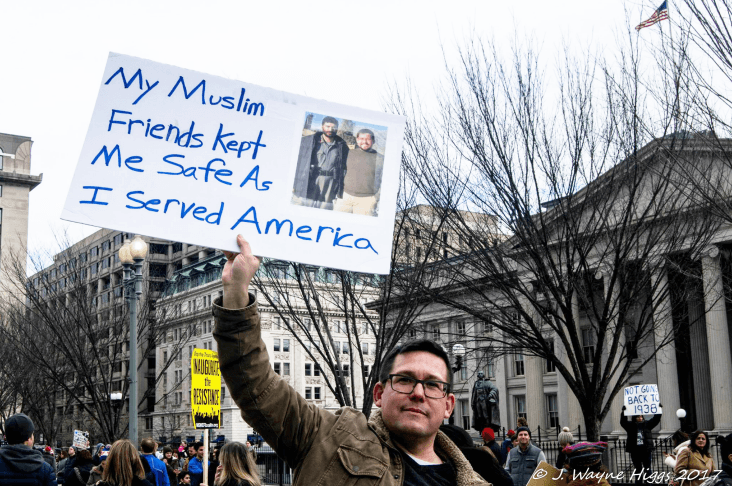Jose Sainz speaks out about the problematic limitations that were placed on UMW students after travel ban
3 min read
John Wayne-Higgins | Professional Photographer related to Olivia Bridges
By OLIVIA BRIDGES
Since President Trump’s inauguration, he has passed many controversial executive orders. The travel ban halted persons entering the United States from seven primarily Muslim countries for 90 days. President Trump’s executive order caused a lot of unrest, especially for American Muslims who were not be able to return to their families in Iran, Iraq, Syria, Sudan, Libya, Yemen and Somalia. However, that ban has recently been lifted but that did not deter any effects that were felt by multiple universities throughout Virginia.
Included in those universities is the University of Mary Washington, whose liberal student population has made their voices heard in the weeks since the order took effect. Students and community member have provided psychological and moral support to members experiencing difficulties due to the ban. Inside the Bell Tower and buildings around campus, written in chalk is, “Love Trump’s Hate,” in protest of his presidency.
“The universities that are being affected by the ban are the ones that have a large population of students and faculty and staff from those particular countries in the ban,” said associate professor of Spanish and Director of the Center for International Education Jose A. Sainz. “It really depends on whether those students or faculty or staff were traveling at the time or not.”
Many American citizens who were traveling when the ban was issued got turned around at airport gates and sent back to the country they came from or were detained until they were cleared to reenter the United States.
“If they were traveling then they were having real issues coming back into the United States, but if they weren’t traveling, for the time being it’s really not affecting them,” Sainz said. “Other than, perhaps having to leave in an emergency situation to visit family…and they will be facing issues.”
Sainz said students of the UMW and those of other Virginia universities who are impacted by the ban are recommended to avoid leaving the countries until after the 90 days or until the situation is clear.
“The students that we have again, have been advised not to travel and to come and chat with us or meet with us, if they need anything,” Sainz said. Junior English major Yasmin Cox feels concerned with President Trump’s actions when addressing judicial process. She finds Trumps presidency problematic for two reasons.
“One: when we begin implementing our private faith into our public policy, that’s problematic… In the beginning, so, my initial thoughts on the ban are that it stems from that kind of mindset and practice,” Cox said.
“It addresses countries who had no impact on the most violent attack on United States soil ever, and so then you begin to really look at the way the ban is orchestrated and put together.”
Cox finds the second reason for her concern towards President Trump the most troubling.
“It causes a real question of concern because countries that did have attackers are not listed on the ban, but then if you do your research, you are also able to figure out those are countries that have business ties with either America in general or with co-addresses 45 now and so that becomes problematic,” Cox said.
According to Mercurynews.com, universities around the United States are fighting back against President Trump’s immigration policy by turning the campus into a “sanctuary campus.” UMW is not among those universities, however. Sainz says that they are closely monitoring the situation. For the time being, it is recommended that UMW students who are affected by the ban should remain on campus and continue going to class.











